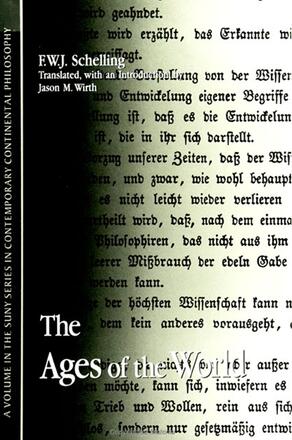
The Ages of the World
Alternative formats available from:
A new English translation of Schelling’s unfinished magnum opus, complete with a contextualizing introduction by the translator.
Description
A new translation of the third and most sustained version of Schelling's magnum opus, this great heroic poem is a genealogy of time. Anticipating Heidegger, as well as contemporary debates about post-modernity and the limits of dialectical thinking, Schelling struggles with the question of time as the relationship between poetry and philosophy. Thinking in the wake of Hegel, although trying to think beyond his grasp, this extraordinary work is a poetic and philosophical address of difference, of thinking's relationship to its inscrutable ground.
Jason M. Wirth is Assistant Professor of Philosophy at Oglethorpe University.
Reviews
"'Unruly. ' That is one word for Schelling's never-completed masterpiece, The Ages of the World. Those who insist that thought be brought under a rule will send this book flying across the room. Never fear: Schelling's text will soar on its own, free and daring and daunting. All who find themselves drawn to the thought of Kierkegaard or Nietzsche, Heidegger or Derrida, Bataille or Irigaray, and all who have a love of freedom and nature, will want to snatch this unruly book out of the air and study it. Jason Wirth's translation, with explanatory notes and introductory essay, is a marvel of precision and soul. With this splendid edition of the 1815 text, Wirth has performed a great service for all who continue to be inspired by the classic works of German Idealism and Romanticism. " — David Farrell Krell, author of Nietzsche: A Novel